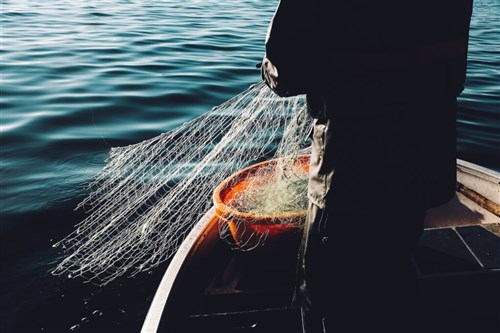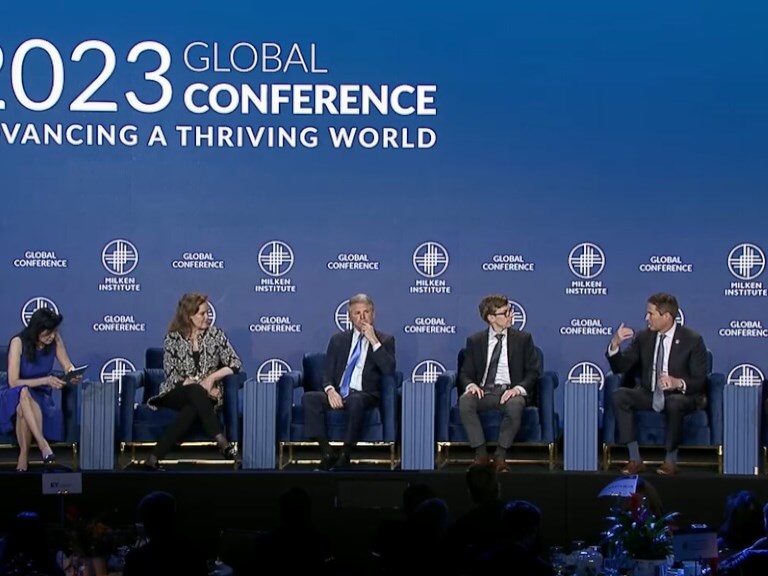EXCLUSIVE / Migrant fishers' rights deal takes force after over 1 year in limbo
04/20/2024 06:34 PM
A deal between a major Indonesian fishers' union and two of the largest Taiwanese seafood associations, which includes a pledge to install Wi-Fi on all fishing boats belonging to the associations, finally came into force this month after being shelved for over a year.
(Full text of the story is now in CNA English news archive. To view the full story, you will need to be a subscribed member of the CNA archive. To subscribe, please read here.)
More in EXCLUSIVE
-
![Transgender man Nemo officially changes gender designation on ID card]() Transgender man Nemo officially changes gender designation on ID cardA transgender man, identified as "Nemo" (尼莫), changed the gender designation on his identification card in Taipei on Friday, becoming the first transgender man in Taiwan to do so without undergoing gender-affirming surgery, after winning a court ruling in May.07/19/2024 09:57 PM
Transgender man Nemo officially changes gender designation on ID cardA transgender man, identified as "Nemo" (尼莫), changed the gender designation on his identification card in Taipei on Friday, becoming the first transgender man in Taiwan to do so without undergoing gender-affirming surgery, after winning a court ruling in May.07/19/2024 09:57 PM -
![Meeting over MOU on migrant fishers' rights ends in stalemate]() Meeting over MOU on migrant fishers' rights ends in stalemateA meeting between Indonesian union leaders and Taiwanese authorities in Taipei on Friday over the signing of a proposed memorandum of understanding (MOU) to improve the rights of distant-water fishers ended with the two sides failing to reach any agreements.03/01/2024 11:21 PM
Meeting over MOU on migrant fishers' rights ends in stalemateA meeting between Indonesian union leaders and Taiwanese authorities in Taipei on Friday over the signing of a proposed memorandum of understanding (MOU) to improve the rights of distant-water fishers ended with the two sides failing to reach any agreements.03/01/2024 11:21 PM -
![Remarks about blowing up TSMC 'selectively clipped': U.S. Rep. Moulton]() Remarks about blowing up TSMC 'selectively clipped': U.S. Rep. MoultonU.S. Representative Seth Moulton on Thursday said the Chinese Communist Party (CCP) "selectively clipped" a video in which he suggested "blow[ing] up" Taiwan Semiconductor Manufacturing Co.'s (TSMC) facilities in Taiwan.05/11/2023 01:48 PM
Remarks about blowing up TSMC 'selectively clipped': U.S. Rep. MoultonU.S. Representative Seth Moulton on Thursday said the Chinese Communist Party (CCP) "selectively clipped" a video in which he suggested "blow[ing] up" Taiwan Semiconductor Manufacturing Co.'s (TSMC) facilities in Taiwan.05/11/2023 01:48 PM
Latest
-
Society
Taipei warns residents as landfill fire smoke drifts across districts
02/19/2026 02:48 PM -
Society
Taiwan headline news
02/19/2026 02:28 PM -
Politics
Ex-recruits look back as alternative diplomatic service phased out
02/19/2026 12:27 PM -
Society
Agricultural research station in Tainan introduces new sesame variety
02/19/2026 12:13 PM -
Society
Taipei restaurant ordered to close after diners fall ill
02/18/2026 11:25 PM


